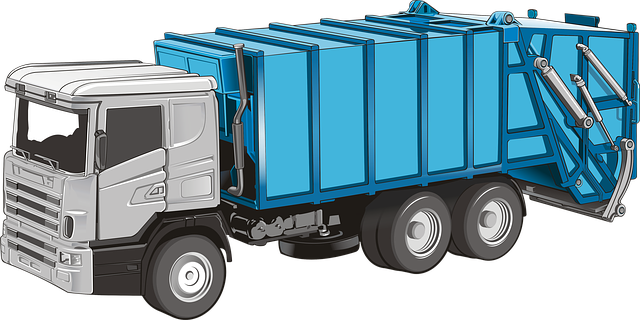In an unpredictable market, resilience is key for business survival and success. Effective cargo coverage plans are essential tools for building this resilience by safeguarding assets during transit and minimizing financial losses from disruptions like natural disasters or market shifts. These scalable insurance strategies allow businesses to navigate complex global supply chains, manage liabilities, and maintain operational continuity while focusing on growth. Customized cargo coverage tailored to specific industry needs ensures robust risk management, financial protection, and adaptability in dynamic environments, ultimately fostering long-term stability and sustainability.
In today’s unpredictable business landscape, fostering resilience is paramount. Discover how scalable insurance solutions, particularly Cargo Coverage Plans, empower businesses to navigate unforeseen challenges with confidence. This article explores the vital role of insurance in building resilience, offering strategic insights into implementing and customizing policies for long-term success. Learn why cargo coverage plans are a versatile and effective tool for businesses seeking stability and protection against evolving risks.
Understanding Resilience and Its Value in Business

Resilience is a cornerstone for any successful business, enabling organizations to withstand and quickly recover from unforeseen events or disruptions. In today’s dynamic business landscape, where risks are diverse and often complex, having robust resilience can be a game-changer. It involves not just surviving but thriving amidst challenges, ensuring operations continue seamlessly with minimal downtime. This is especially crucial in managing supply chain complexities, as exemplified by the recent global cargo coverage plans that highlighted the need for adaptable insurance solutions.
Business resilience ensures companies can respond effectively to disruptions like natural disasters, cyberattacks, or sudden market shifts, allowing them to maintain productivity and protect their reputation. By implementing scalable insurance strategies, businesses can access tailored cargo coverage plans that align with their unique risks and growth aspirations. This proactive approach enables enterprises to safeguard their assets, manage liabilities, and continue operations without significant hurdles, ultimately fostering a culture of resilience and sustainability.
The Role of Insurance in Building Business Resilience

In today’s unpredictable business landscape, fostering resilience is paramount for long-term success. Insurance plays a crucial role in this strategy by providing a safety net against unforeseen events that could disrupt operations and impact profitability. Scalable insurance solutions, tailored to meet the unique needs of growing businesses, offer flexibility and comprehensive protection. These solutions, including cargo coverage plans, are designed to safeguard assets, minimize financial losses, and ensure business continuity.
By implementing robust insurance policies, businesses can navigate challenges such as natural disasters, property damage, or even sudden shifts in market conditions. Cargo coverage plans, for instance, protect valuable goods during transit, mitigating risks associated with shipping and logistics. This proactive approach empowers organizations to focus on growth and innovation while knowing that their future is secured against potential threats.
Cargo Coverage Plans: A Scalable Solution for Businesses

In today’s dynamic business landscape, where operations often span global supply chains, having robust cargo coverage plans is essential for fostering resilience. Cargo coverage solutions offer businesses scalable insurance options tailored to protect their goods during transit, storage, and even while in transit between countries. This approach ensures that companies can continue their operations uninterrupted, even in the face of unforeseen events such as natural disasters, political unrest, or accidents.
By implementing scalable cargo coverage plans, businesses gain flexibility to adapt to changing market conditions and risk profiles. These plans allow for customized coverage levels based on specific needs, whether insuring high-value inventory or a diverse range of products. Such adaptability is crucial in maintaining supply chain efficiency and financial stability, ultimately contributing to the overall resilience of operations.
Implementing and Customizing Insurance Solutions for Long-Term Resilience

Implementing insurance solutions tailored to long-term resilience requires a strategic approach, especially in dynamic environments. Businesses should not settle for one-size-fits-all policies but instead, customize their cargo coverage plans to align with specific industry needs and risk profiles. This involves assessing potential threats, from natural disasters to cyberattacks, and designing comprehensive insurance packages that offer both financial protection and risk mitigation strategies.
Scalable insurance solutions are key to fostering resilience over time. As businesses grow and operations evolve, so should their insurance coverage. Flexible policies that can be easily adjusted upwards or downwards based on changing circumstances ensure that organizations remain adequately insured without incurring unnecessary costs. By adopting this adaptive approach, businesses can build a robust risk management framework capable of supporting long-term growth and stability.
In today’s unpredictable business landscape, fostering resilience is key to long-term success. Insurance plays a pivotal role in this strategy, offering scalable solutions like cargo coverage plans that adapt to growing enterprises. By implementing and customizing these plans, businesses can protect their assets, manage risks effectively, and ensure continuity amidst challenges. Embrace these strategies to build a robust and adaptable organization ready to navigate any storm.
